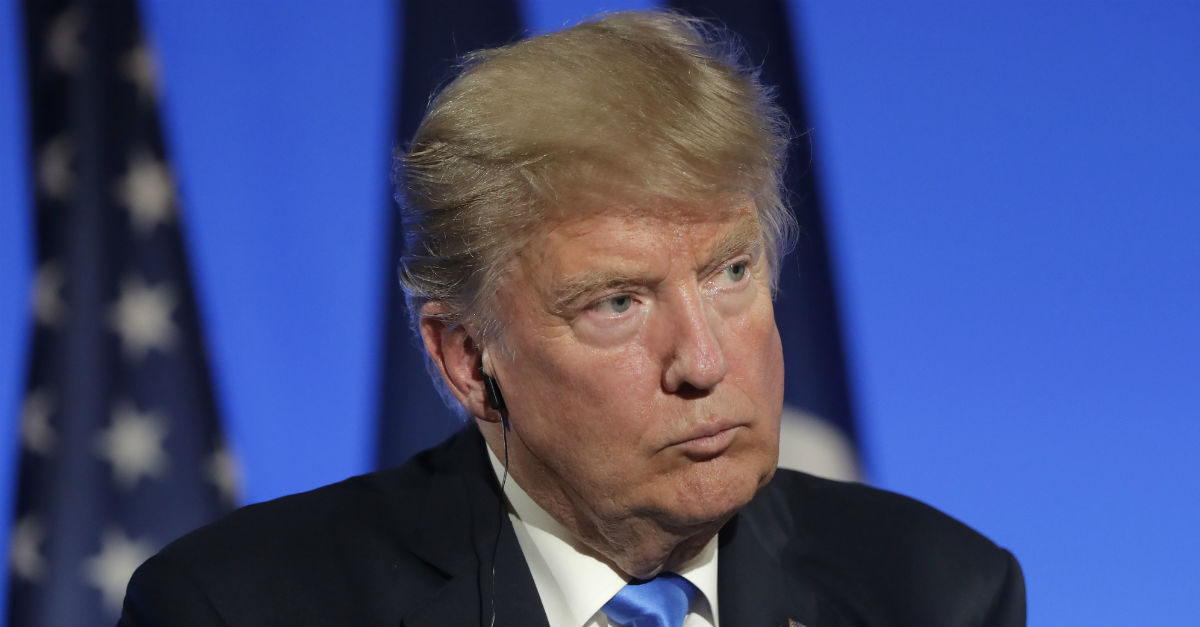President Donald Trump was dealt a humiliating defeat on Tuesday. It came courtesy of a bipartisan majority in the House of Representatives on the most comprehensive sanctions bill the chamber has passed so far this year.
Videos by Rare
The measure, which freezes assets and punishes individuals, companies, and financial institutions that have aided Iran’s ballistic missile program, North Korea’s weapons of mass destruction programs and Russia’s active interference in last year’s American presidential election, is everything that lawmakers like to vote for. Who doesn’t get excited about screwing the mullahs and the Russian intelligence services? But in Trump’s case, the bill is a legislative handcuff that will restrain his ability to lift or suspend sanctions against the Russians.
In the normal course of business, the president is given a national security waiver in these kinds of sanctions bills. If the president believes that relieving a country from economic limitations is necessary to improve the atmosphere for a negotiation or as a way to signal good faith, he can report to Congress that it isn’t the right time to implement them. Lawmakers may complain or be disappointed by a waiver, but Congress for the most part has recognized that presidents need some flexibility in their foreign policy duties.
RELATED: Democrats won’t win by focusing obsessively on Trump and Russia
The Russia sanctions bill that sailed through the House is the opposite of flexible. It requires Trump (and any future president) to submit a report to congressional committees outlining any sanctions on Moscow he might wish to lift and why it would be in the national security interest to do so. Congress is then granted a formal mechanism to file a resolution of disapproval, can call administration officials to testify and is guaranteed a vote (either in committee or, after 10 days without committee action, on the floor) to block the move.
So if this bill becomes law, in the event President Trump decides a concession on sanctions is required, he would first need to receive the blessing of a Congress that’s as anti-Russia as it’s been since the Cold War.
The Trump administration has spent several weeks on Capitol Hill lobbying lawmakers to water down some of these provisions. Congress, however, hasn’t bought into the White House’s arguments: they amended the bill, but the congressional power to block the lifting of sanctions was kept right where it was. Notwithstanding administration officials who have put on a happy face, the bill is an unquestionable rebuke to the president and a message from a majority of both Republicans and Democrats that they don’t trust Trump to act responsibly on Russia policy. Congress wants a seat at the table and believes Vladimir Putin’s aggression is too important for the administration to manage alone.
RELATED: Donald Trump Jr.’s meeting with that Russian attorney was foolish but not illegal
Assuming that the Senate passes what the House sent over (the first version of the bill sailed through the upper chamber with just two ‘no’ votes), Trump will be confronted with one of the most politically fraught decisions of his presidency. Does he veto a bill he clearly hoped would go away, risking an overwhelming veto override and furthering the narrative that he’s blind to Russia’s violations of international norms? Or does he sign the bill when it comes to his desk, despite the fact that his power to improve America’s relationship with Moscow will be dealt an extreme setback? It’s a die-if-you-do, die-if-you-don’t situation from Trump’s perspective.
The Russia investigation storm clouds are raining fury on the White House every hour of every day, so it feels appropriate that the one major piece of legislation that Congress will pass before leaving for the summer recess is a Russia sanctions bill.



